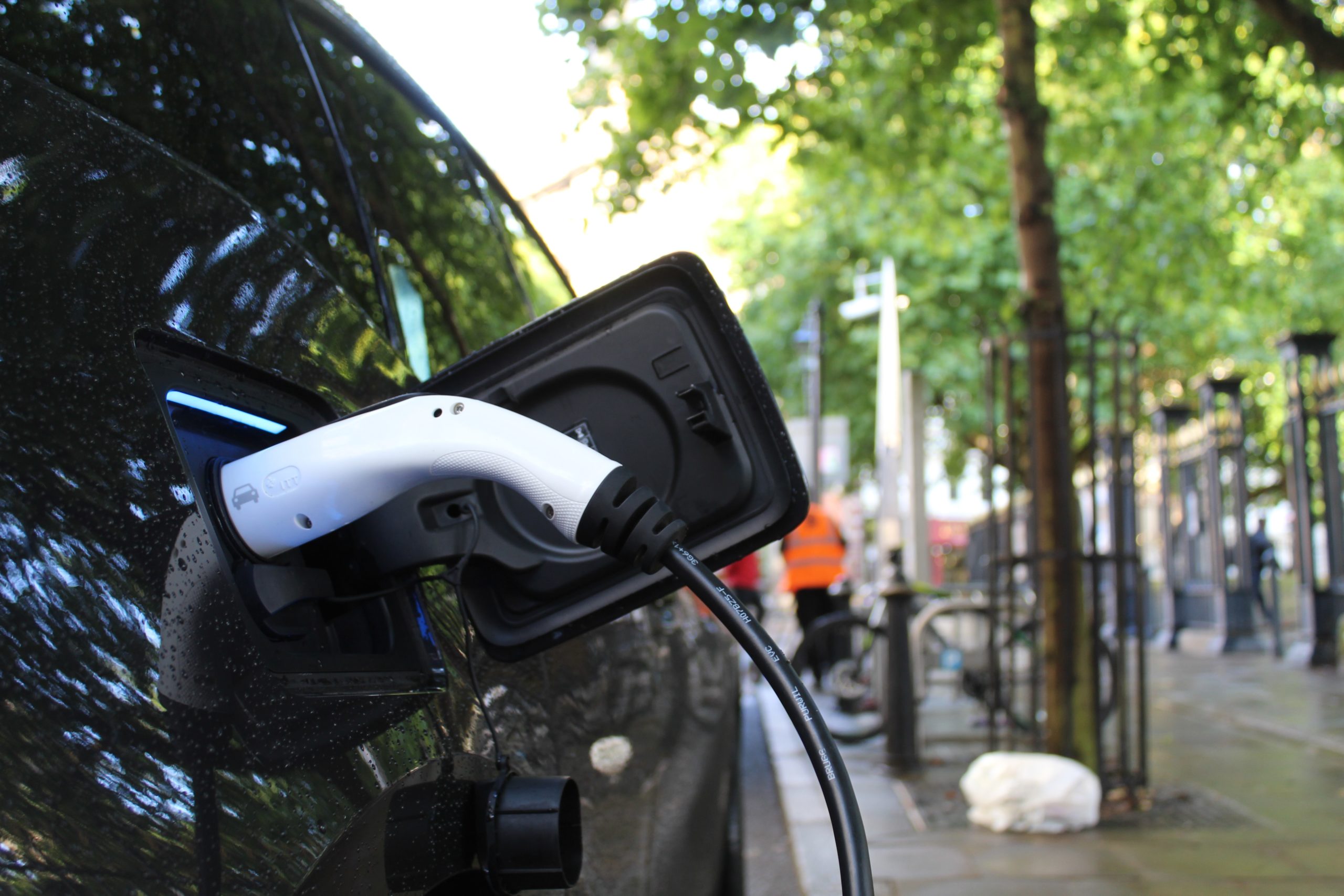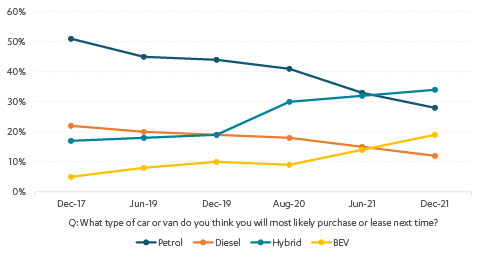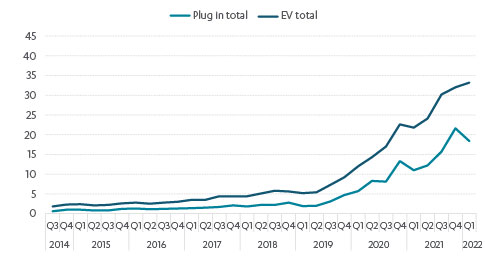In the first National Infrastructure Assessment, the Commission made a number of recommendations about the rollout of Electric Vehicle (EVs) chargepoints, including prioritising a national rapid-charging network, allocating more local authority parking spaces for charging, and investing in a smarter electricity network.
Around the same time, the Government’s Centre for Connected and Autonomous Vehicles (CCAV) started monitoring public attitudes about new transport technologies, and the Department for Transport’s transport technology tracker survey published its eighth edition this May.
We regularly monitor the implementation of our recommendations. Rarely, however, do we get a dataset that shows how the public feel about them in real time.
The new data gives us a clear view of what’s changed and what’s stayed the same in the time since the last Assessment. It highlights the ongoing importance of what we’ve recommended, but also the practical barriers that the Government is facing in implementing our recommendations.
Crucially, awareness of EVs is now total: in the latest technology tracker, 99 per cent of respondents said they were aware of electric vehicles.[1] This compares to 93 per cent of people who were aware of electric vehicles at the time of our first Assessment in 2018.[2]
The education phase of the country’s transition to electric vehicles is, therefore, now complete.
While the public are aware of EVs, this doesn’t count for much if they aren’t willing to buy them. Positively, here we have also seen shifts in people’s intention to purchase an EV as their next car.
The number of people considering buying a hybrid or purely battery vehicle has grown hugely in the last four years. In the latest survey, more than half of people (53 per cent)[3] said their next vehicle purchase would either be a hybrid or purely battery vehicle, compared to just a fifth of motorists (21 per cent)[4] back in 2017. For the first time, more people are planning to buy a battery or hybrid vehicle than those planning to buy a petrol or diesel one as their next car.
Car purchasing intentions
Source: Dft 2020 Transport and Technology: Public Attitudes Tracker Wave 5 summary report p.11, Dft 2020 Transport and Technology: Public Attitudes Tracker Wave 6: Summary report p.12, DfT 2021 Technology Tracker: Wave 8 p.5
We can see that the public are aware of the vehicle transition and are increasingly willing to make the change. This is born out in encouraging registration data.
EV registrations
When asked about the benefits of electric vehicles, 55 per cent mention anticipated savings on road tax and 40 per cent cite reduced running costs.[5] However, 81 per cent also talk about the environmental benefits of electric vehicles.[6] Consumers are it seems increasingly willing to make the switch to EVs and understand the reasons why it is both necessary and desirable to do so.
So, what is still holding people back?
When asked what about the disadvantages of EVs, the most important response was the availability of charge points, given by 73 per cent of people surveyed.[7] Respondents also mentioned the range of vehicles, the time taken to charge, and knowing how to charge.
The other key barrier was the upfront cost of EVs, mentioned by 71 per cent.[8] (Note: the survey has recently changed the way it asks this question; however, even in the first iteration recharging made up the top three drawbacks of electric vehicles).
It is clear, then, that the big barrier for expanding EVs ownership and the transition to a net zero transport sector remains the rollout of charging infrastructure. That is why the Commission has made a series of recommendations on the need for a clear strategy from government and concrete plans to intervene where the market is unlikely to deliver infrastructure quickly enough.
One of the priorities in our Infrastructure Progress Review 2022 was to initiate a step change in the deployment rate of chargepoints. We must do this to get on track to deliver the infrastructure needed to facilitate the 2030 cut-off date for ending the sale of new petrol and diesel cars.
As of July, however, there are currently only 32,011 EV chargers; this is against the 300,000 the Government expects by 2030.[9]
For the next Assessment, we will also be examining the ways in which transport can be net zero compliant. Given the way in which surface transport is dominated by car and van traffic, the rollout of EVs will be crucial. We will be looking at ways in which the transition could be expedited and will examine possible policy levers the Government could pull.
However, it is clear from the analysis we undertook in the first Assessment – and the Government’s own data – that delivering a lot more chargers will be crucial in any scenario.
Andrew Jones is a senior policy adviser at the Commission.
References
[1] Department for Transport (2021), Technology Tracker: Wave 8 p.7
[2] Department for Transport (2021), Transport and technology: public attitudes tracker waves 1 and 2 summary report p.2
[3] Department for Transport (2021), Technology Tracker: Wave 8 p.5
[4] Department for Transport (2021), Transport and technology: public attitudes tracker waves 1 and 2 summary report p.7
[5] Department for Transport (2021), Technology Tracker: Wave 8 p.8
[6] Department for Transport (2021), Technology Tracker: Wave 8 p.8
[7] Department for Transport (2021), Technology Tracker: Wave 8 p.10
[8] Department for Transport (2021), Technology Tracker: Wave 8 p.10
[9] Department for Transport (2022), Electric vehicle charging device statistics: July 2022; UK electric vehicle infrastructure strategy p.38






